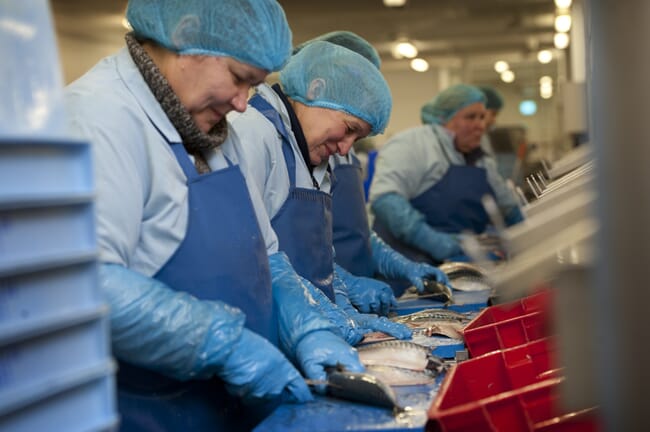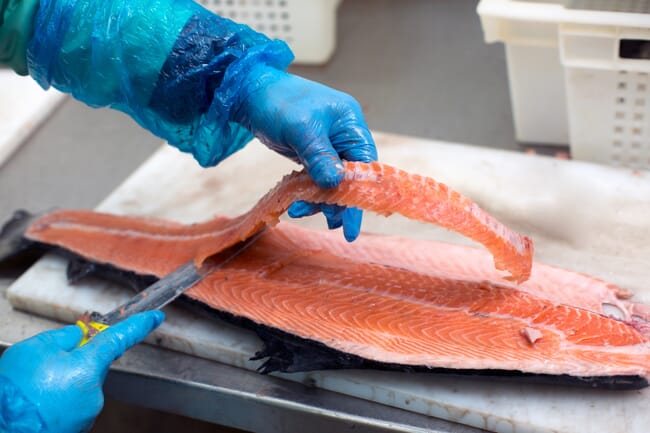
© Seafish
Processing businesses are encouraged to take part and make their voices heard: the more data they provide, the more accurately the sector will be represented and understood.
The survey, which consists of a five-minute call and short follow-up email, collects data which helps government understand how businesses and communities are impacted by local, national and international events. This information can also be used by businesses to provide evidence to government of challenges within the industry.
Jimmy Buchan, CEO at Scottish Seafood Association, said, "we should never underestimate the importance of clear statistical and financial data on the sector. When the Scottish Government was developing the Scottish Seafood Business Resilience Fund, it was data from previous Seafish processing surveys that they turned to. While we can debate whether the right support was provided, we will always be better placed to make our case to governments if we have the data to support it. I would strongly encourage seafood businesses of all sizes, wherever you are in the UK, to fully engage with Seafish to complete the survey and provide the requested financial data."

The survey findings also provide evidence for trade agreements and import/export guidance, as well as demonstrating jobs supported by the sector to schools and prospective workers.
Industry leaders are calling on processors across the UK to take this opportunity to provide data by speaking with the Seafish economics team.
Simon Dwyer of Seafood Grimsby & Humber cluster group, said, "when the government was developing free trade agreements, they relied on data from previous Seafish processing surveys. This really illustrates to me and the Grimsby Seafood Cluster that we will always be better placed to make our case to governments if we have the data to support it."
Now, more than ever, it is essential for processors across the UK to share their challenges and their data. Arina Motova, Seafish chief economist, said, "the processing census is extremely important for our understanding of the seafood processing sector. The financial data collected as part of the processing survey in particular helps us to build a comprehensive picture of economic performance of the industry, costs and economic challenges it faces over time. We use this evidence in discussions with the industry and government, and to help our valued stakeholders make informed decisions with accurate data. We also value our data providers confidentiality and stick to strict confidentiality rules when publishing the data collected. As such, I would strongly encourage businesses to use this opportunity to engage with our researchers and ensure their voice is heard."




